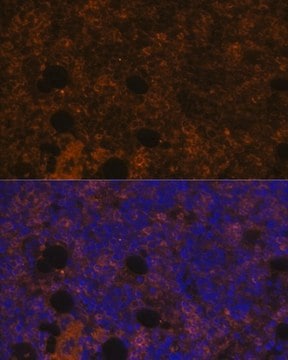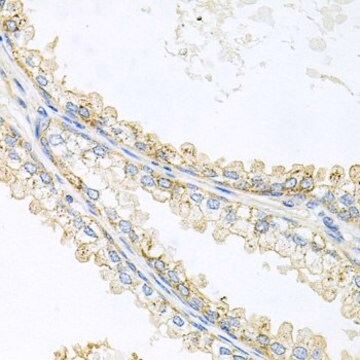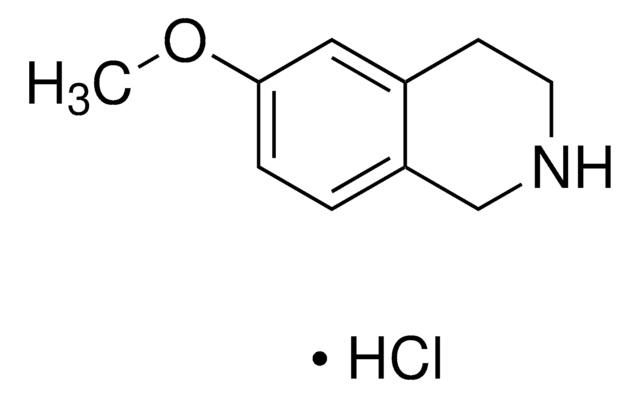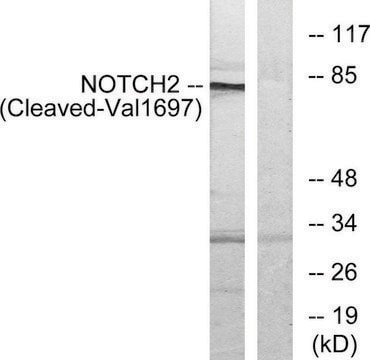MAB10207
Anti-Fusion Glycoprotein of Human parainfluenzavirus Type 3 Antibody, clone 9-4-3
ascites fluid, clone 9-4-3, Chemicon®
Sinônimo(s):
PI3
Faça loginpara ver os preços organizacionais e de contrato
About This Item
Código UNSPSC:
12352203
eCl@ss:
32160702
NACRES:
NA.41
Produtos recomendados
fonte biológica
mouse
Nível de qualidade
forma do anticorpo
ascites fluid
tipo de produto de anticorpo
primary antibodies
clone
9-4-3, monoclonal
reatividade de espécies
human
fabricante/nome comercial
Chemicon®
técnica(s)
immunofluorescence: suitable
Isotipo
IgG1
nº de adesão UniProt
Condições de expedição
wet ice
Descrição geral
Human parainfluenza virus type 3 (PI3 virus) causes mild to severe respiratory tract infection in infants. PI3 virus is an enveloped RNA virus and possesses two glycoproteins, hemagglutinin-neuraminidase (HN) and fusion (F), at its external surface. These two glycoproteins are known to be responsible for initiation and progress of the infection process
Imunogênio
Fusion (F) glycoprotein of human parainfluenzavirus type 3
Informações legais
CHEMICON is a registered trademark of Merck KGaA, Darmstadt, Germany
Não está encontrando o produto certo?
Experimente o nosso Ferramenta de seleção de produtos.
Código de classe de armazenamento
10 - Combustible liquids
Classe de risco de água (WGK)
WGK 1
Ponto de fulgor (°F)
Not applicable
Ponto de fulgor (°C)
Not applicable
Certificados de análise (COA)
Busque Certificados de análise (COA) digitando o Número do Lote do produto. Os números de lote e remessa podem ser encontrados no rótulo de um produto após a palavra “Lot” ou “Batch”.
Já possui este produto?
Encontre a documentação dos produtos que você adquiriu recentemente na biblioteca de documentos.
M A Horga et al.
Journal of virology, 74(24), 11792-11799 (2000-11-23)
Viral interference is characterized by the resistance of infected cells to infection by a challenge virus. Mechanisms of viral interference have not been characterized for human parainfluenza virus type 3 (HPF3), and the possible role of the neuraminidase (receptor-destroying) enzyme
Antiviral effects of glycosylation and glucose trimming inhibitors on human parainfluenza virus type 3
Tanaka, Yoshikazu, et al
Antiviral research, 72, 1-9 (2006)
Laura M Palermo et al.
Journal of virology, 83(13), 6900-6908 (2009-04-24)
Three discrete activities of the paramyxovirus hemagglutinin-neuraminidase (HN) protein, receptor binding, receptor cleaving (neuraminidase), and triggering of the fusion protein, each affect the promotion of viral fusion and entry. For human parainfluenza virus type 3 (HPIV3), the effects of specific
Ying Liu et al.
Virus genes, 56(1), 37-48 (2019-11-27)
Human parainfluenza virus type 3 (HPIV3) causes the majority of childhood viral pneumonia around the world. Fusing the viral and target cell membranes is crucial for its entry into target cells, and the fusion process requires the concerted actions of
Wenyan Xie et al.
PloS one, 10(8), e0136474-e0136474 (2015-08-26)
Human parainfluenza virus type 3 (HPIV3) can cause severe respiratory tract diseases in infants and young children, but no licensed vaccines or antiviral agents are currently available for treatment. Fusing the viral and target cell membranes is a prerequisite for
Nossa equipe de cientistas tem experiência em todas as áreas de pesquisa, incluindo Life Sciences, ciência de materiais, síntese química, cromatografia, química analítica e muitas outras.
Entre em contato com a assistência técnica







